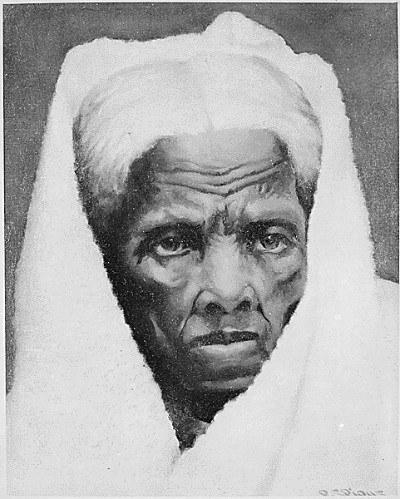
Abolitionist, humanitarian, hero, spy, nurse and fearless freedom fighter; Harriet Tubman was all of the above.
Tubman was born ‘enslaved’ in Maryland in 1820. Her original name was Araminta Ross, but took the name Tubman after marrying John Tubman.
As a child Tubman was said to be head strong and resilient. She once bite the knee of a slave owner when she was attacked; one of many acts of defiance Tubman displayed. Tubman often received several lashing due to her “back talk.”
Although she was made to take of children, she was still tough. As she grew older and stronger, she was assigned to grueling field and forest work: driving oxen, plowing, and hauling logs; like any other man.  One day, when she was an adolescent, Tubman was sent to a dry-goods store for some supplies. There, she encountered an enslaved African ‘owned’ by a different family, who had left the fields without permission. His overseer, who was furious, demanded that Tubman help restrain the young man. Tubman refused. And as the slave ran away, the overseer threw a two-pound weight from the store's counter that missed and struck Tubman instead. She said it "broke my skull.” While this left Tubman with a lifelong battle with temporal lobe epilepsy-black outs, it did not cause her will to leave her.
One day, when she was an adolescent, Tubman was sent to a dry-goods store for some supplies. There, she encountered an enslaved African ‘owned’ by a different family, who had left the fields without permission. His overseer, who was furious, demanded that Tubman help restrain the young man. Tubman refused. And as the slave ran away, the overseer threw a two-pound weight from the store's counter that missed and struck Tubman instead. She said it "broke my skull.” While this left Tubman with a lifelong battle with temporal lobe epilepsy-black outs, it did not cause her will to leave her.
The urge for freedom was always present in Tubman. She had heard of people escaping to the North and surviving. In 1849, Tubman escaped to freedom with her brother.
During the journey Tubman’s brother got frightened and said that he wanted to go back; forcing Tubman to go alone.
I freed a thousand slaves I could have freed a thousand more if only they knew they were slaves.She returned and led not only her family to freedom but hundreds more along the ‘Underground Railroad,’ a network of safe houses and where those who escaped slavery could stay while on their path to freedom.

Harriett once said, “I freed a thousand slaves I could have freed a thousand more if only they knew they were slaves.”
A devout Christian who was led by her visions from God, she has been called, “Moses,’ alluding to the prophet who led his people to freedom.
We celebrate Harriet not only for her valor but her courage.
What are you doing to ensure Harriet’s work is not in vain?
By Shontrice Williamson
Contributor
The Black Hour


